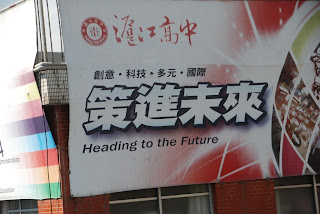In Taiwan,
there are more than 100,000 roadside stands that are nothing more than glass
cages with neon or bright, colored flashing lights. Inside the glass cage is a young woman
dressed in a bikini, underwear or similar apparel, ready to serve the betelnut
to passing customers. The customers are
typically taxi and truck drivers, or construction and factory workers beginning
their shifts.
The Betelnut
Girl wearing minimal clothing, originated in the 1960s, but flourished in the
1990s. Two changes in Taiwan at that time likely
contributed to this: 1) commodity Taiwanese factory work was transferred to
China, limiting the job potential for uneducated women and 2) martial law ended
in 1987 paving the way for democracy, which created a period of time with
limited government control over some activities.
International
interest in the Betelnut Girl came after the 2001 movie Ai Ni Ai Wo (Love You,
Love Me) was popular in Asia. The movie
was released to the west as Betelnut Beauty.
The movie featured some aimless young people in Taipei, including some
of the characters working the trade.
The stands
are considered a front for prostitution, and while they most likely were, and
probably are to a lesser extent today, that is how they are viewed by the local
population. A great deal of energy has gone into the debate of whether these
young women are exploited or are exercising the same freedom given to fashion models and
women of other occupations. One well
respected university in Taiwan has built this trade into social science classes. Photography shows in Taiwan have featured
pictures of the women.
After the
attention the movie created, many politicians attempted to shut down the
practice of roadside stands. The farm
lobby is very strong in Taiwan and opposed these efforts, and organized crime
became involved, selling protection to the women. The Betelnut Girl is alive and well, though
presumably tamed down somewhat from several years earlier. While most all travel guides enjoy describing
this unique piece of culture, the educated local population is embarrassed by
the attention brought to Taiwan.
As a side
note, chewing betelnut is a leading cause of oral cancer in Asia and a growing
health risk. I did not take any photos
for this blog, however I have attached some links to sites if you want to see
how it looks.
www.youtube.com/watch?v=HJo7ZkLwkng

.jpg)





















